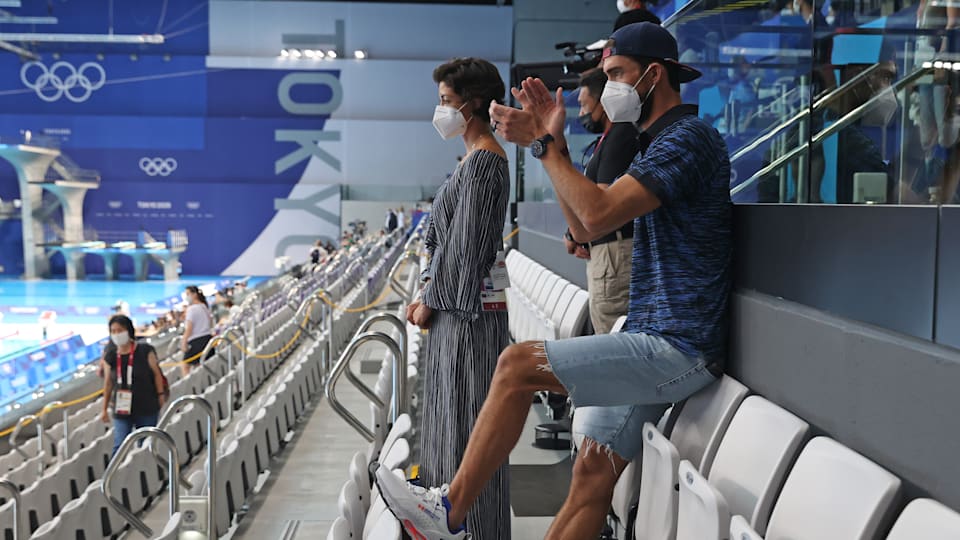
Michael Phelps didn’t wake up one day with 28 Olympic medals, 23 of them gold.
That legacy took years of dedication, short- and long-term goals, the perseverance to overcome obstacles and an ability to dream big, he said Saturday (31 July) in a virtual event sponsored by Panasonic in which he reiterated that mental health needs to be prioritised in sports: "We've seen how many people are struggling from similar things that I've struggled from or Simone Bile struggles from."
The swimming legend also emphasised the value of having objectives.
“I think it's important to have a dream because that's what's going to drive you. That's what's going to help you. It's going to motivate you to get out of bed every single day,” said Phelps. “I had these dreams of being an Olympic swimmer, a world record holder.”
Those goals weren’t always met with support.
“Growing up, people thought I was crazy wanting to do something different in the sport, do something that nobody else has ever done in the sport but I was excited,” Phelps said. “So, I would say, don't be afraid to dream as big as you possibly can. I mean, absolutely as big as you can.”
For Phelps, turning those big dreams into reality was no easy feat and included a years-long stretch of non-stop training.
“We went five or six years without missing a single day. 365 days. No days off, no birthday, no Christmas. We were in the water every single day,” Phelps explained. “I was willing to do anything, anything it took to have that chance.”
But the 36-year-old, who finds himself on the pool deck at Tokyo 2020 providing commentary for NBC, says it wasn’t always smooth sailing.
“I know that my road and my path to get to where I am today wasn’t easy,” he admitted. “I had some roadblocks in my way that I had to learn how to figure out, to get around or how to climb over them.”
Those roadblocks included struggles with mental health, a topic the champion swimmer has spent much of his time since retiring after the 2016 Olympic Games in Rio discussing.
“I can go back to 2004 and say that was when I first experienced it,” Phelps said. “That was the first time I came across depression coming back from the 2004 Olympic Games. I suffered from post-Olympic depression pretty bad.”
He described another period of depression following his successes at the Beijing Olympic Games in 2008. From there, he says, it continued to come in waves.
But in 2014, he started to come to understand better what he was dealing with.
“That was when I was finally able to really see that this is who I am and it's a part of me and it's not going to go away. So, I need to learn more about it. I need to learn why I work how I work, why I am how I am,” he explained. “I was able to dive into some things that I had been stuffing down inside, kind of compartmentalizing and not wanting to address and acknowledge. I think at that point I was really able and ready to grow and learn.”
He hopes that by sharing his struggles, he’ll help others learn as well.
“Hopefully, I can save a life. I can help somebody else because I know that the feelings that I have, I had, what I go through every single day, every single week, every single month. I know I'm not alone and I understand that for me it's OK to not be OK,” he said.
